Guide

Page i Page ii Page iii
Campaign Finance and Political Polarization
When Purists Prevail
Raymond J. La Raja and Brian F. Schaffner
University of Michigan Press
Ann Arbor
Page iv
Copyright by the University of Michigan 2015
All rights reserved
This book may not be reproduced, in whole or in part, including illustrations, in any form (beyond that copying permitted by Sections 107 and 108 of the U.S. Copyright Law and except by reviewers for the public press), without written permission from the publisher.
Published in the United States of America by the University of Michigan Press
Manufactured in the United States of America
 Printed on acid-free paper
Printed on acid-free paper
2018 2017 2016 2015 4 3 2 1
A CIP catalog record for this book is available from the British Library.
Library of Congress Cataloging-in-Publication Data
Library of Congress Cataloging-in-Publication data has been applied for.
ISBN 978-0-472-07299-6 (hardcover : alk. paper)
ISBN 978-0-472-05299-8 (paper : alk. paper)
ISBN 978-0-472-12160-1 (e-book)
Support provided by The William and Flora Hewlett Foundation.
The opinions expressed in this report are those of the authors and do not necessarily reflect the views of The William and Flora Hewlett Foundation.
Page v
To my children, Alex, Luca, and Ta, whose zest for
life, hopefulness, and humor brighten my days
Raymond La Raja
To my parents, who instilled in me a thirst for
knowledge and a love of politics
Brian Schaffner
Page vi Page vii
Contents
- Page viii
Page ix
Figures
Page x Page xi
Tables
Page xii Page xiii
The public intensely dislikes how campaigns are financed in the United States. We can understand why. The system of private financing seems rigged to favor special interests and wealthy donors. Much of the reform community has responded by calling for tighter restrictions on private financing of elections to push the system toward small donor democracy and various forms of public financing. These strategies seem to make sense and, in principle, we are not opposed to them.
But our research and professional experience as political scientists have led us to speculate that these populist approaches to curtailing money in politics might not be alleviating, but contributing to, contemporary problems in the political system, including the bitter partisan stand-offs and apparent insensitivity of elected officials to the concerns of ordinary Americans that appear to characterize the current state of U.S. politics. Indeed, we began to sense that the populist approach to campaign finance reform may reflect a larger pattern of populist assumptions about how democracy works that have in fact led to ill-conceived reforms in other areas, as Bruce Cain argues in Democracy More or Less (2014). We wondered if anticorruption rules, which purportedly make the wealthy less influential, were in fact doing the opposite: making the system even less responsive to broad constituencies and rendering political discourse even more acerbic than it would otherwise be.
Our hunch was that prevailing approaches to reform may reinforce the influence of a small fraction of citizens and groups that already dominate the financing of politics. How could this be? One plausible reason is that such donors already have the means and motive to contrive ways to get around the most stringent elements of campaign finance laws. But there may be more to the story. We have observed that there is an essential element Page xiv missing from most campaign finance reform strategies: the realization that restrictions on money in politics actually enfeeble political parties.
Our growing conviction that most contemporary campaign reform initiatives have undervalued the roles that political parties play in U.S. politics led us to undertake the research project that culminated in this book. In fact, a vast body of research on democratic politics indicates that parties play several vital roles, including aggregating interests, guiding voter choices, and holding politicians accountable with meaningful partisan labels. Yet this research seems to have been ignored in the design of post-Watergate reforms.
The consequence, as we show in this book, is the continuation of a shift begun in the early 20th century from party-centered politics to candidate-centered politics. The counterintuitive result has been a system in which interest groups and intensely ideologicaland wealthycitizens play a disproportionately large role in financing candidates for public office. This dynamic has direct implications for many of the problems facing American government today, including ideological polarization and political gridlock. The campaign finance system is certainly not the only source of polarization and gridlock, but we think it is an important part of the story. In this book, we tell this story by considering the rich variation in campaign finance laws in the 50 American states and comparing their effects on political discourse and elections.
Our motivation to write this book reflects both our scholarly interests and our concerns as citizens. We take seriously the urging of the leadership in our profession, particularly reflected in the American Political Science Association (APSA), to make political science relevant for broader societal concerns. In the past decade APSA presidential addresses have called for greater attention to problems associated with inequality, partisan polarization, and the dysfunction of the American political system. This book addresses some of these issues. We embarked on the project not simply to solve a puzzle in the scholarship about financing in the party system, but to understand how campaign finance laws affect elections and governance, with an eye toward making useful policy recommendations.
Our work developed from emergent research about the dynamics of partisan polarization and new conceptions of American political parties, particularly those formulated by a group we call the UCLA school. The ideas for this book advanced from ongoing conversations and blog exchanges (via the Monkey Cage and Election Law Blog) with our colleagues who study and/or practice election law, including Steve Ansolabehere, Bob Bauer, Bob Biersack, Rob Boatright, Adam Bonica, Bruce Cain, Guy-Uriel Charles, Tony Corrado, Diana Dwyre, John Fortier, Michael Franz, Erika Fowler, Page xv Ben Ginsberg, Keith Hamm, Rick Hasen, Paul Herrnson, Eitan Hersh, Ruth Jones, Dave Karpf, Robin Kolodny, Michael Malbin, Tom Mann, Seth Masket, Ken Mayer, Eric McGhee, Sid Milkis, Jeff Milyo, Nate Persily, Rick Pildes, Trevor Potter, Lynda Powell, John Samples, and John Sides.
We also benefited significantly from the leadership of forward-thinking foundations and policy centers that have been trying to address emergent problems of governance in the United States. Together the leaders in these organizations created a forum for robust dialogue on political reform. This group includes Joe Goldman of the Democracy Fund, who initiated a round of discussions that convened academics, practitioners, and reformers. These excellent forums were led by John Fortier of the Bipartisan Policy Center and Nate Persily of Stanford University Law School. Above all, we would like to thank Daniel Stid and Larry Kramer of the Hewlett Foundation for providing the support that made this project feasible, as well as program officers Jean Parvin Bordewich and Kelly Born.

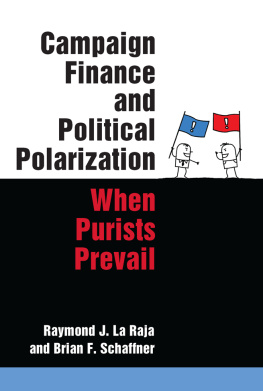



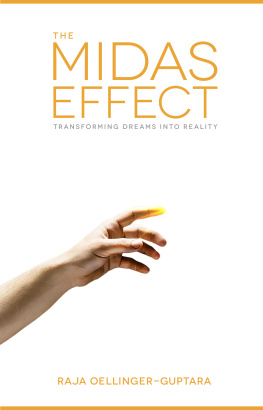

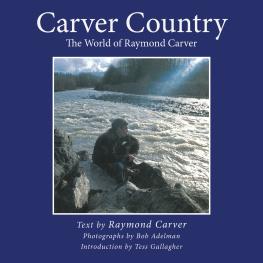
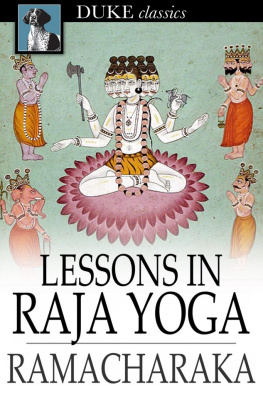
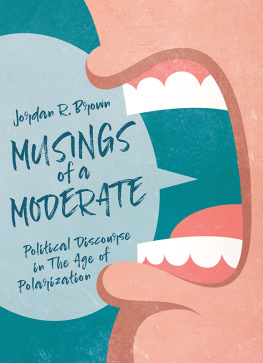
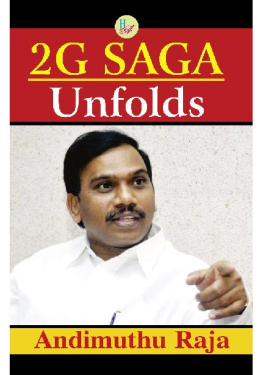
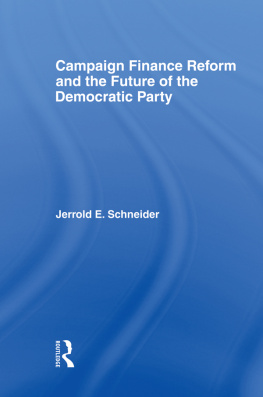
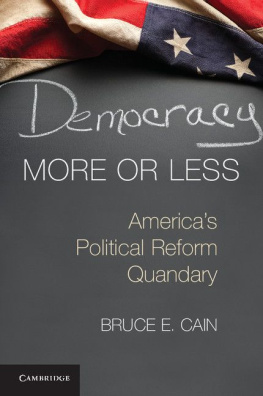
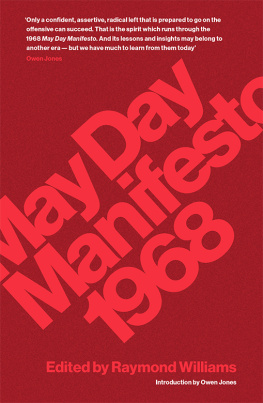
 Page i Page ii Page iii
Page i Page ii Page iii  Printed on acid-free paper
Printed on acid-free paper